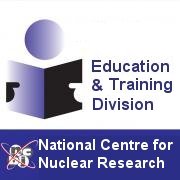Heuristic vs Mathematically Complete Sources of Uncertainty
2020.12.04 12:56 - Anna RędaszekA predictive science for many problems of interest requires advanced mathematical and computational tools that explain how the uncertainties, ubiquitous in all modeling and simulation efforts, affect our predictions and understanding of complex phenomena. This remains a fundamental difficulty in most modeling and simulation applications. There are many classification systems for the different uncertainties which occur in modeling and simulation. Most practical uncertainty frameworks are discipline-specific or model-specific. These classification systems define categories of uncertainties which need to be considered for a specific model or application. Such uncertainty frameworks cannot be proved complete, and certainly are not universal. To develop a fully complete set of errors associated with modeling and simulation, it is necessary to define every error that could affect the accuracy of a computational model’s prediction of the real world system, i.e. a set of errors that is theoretically complete. The presentation will show three main types of uncertainty frameworks, including a theoretically complete set of errors that, if accounted for, would result in the correct prediction of reality. The presented theoretically complete set of errors is a set of thirteen distinct difference terms, which are closely related to current practices in verification, validation, and uncertainty quantification. It can be easily shown that these thirteen errors represent a theoretically complete set of errors.
Serdecznie zapraszamy,
M. Dąbrowski, T. Kwiatkowski
| Attachment | Size |
|---|---|
| 488.02 KB | |
| 443.33 KB |













